Just In
- 5 hrs ago

- 7 hrs ago

- 8 hrs ago

- 8 hrs ago

Don't Miss
- Movies
 Salaar 2: Vijay Deverakonda's Cameo In Prabhas-Prashanth Neel's Hyped Sequel Shouryaangaparvam? All We Know
Salaar 2: Vijay Deverakonda's Cameo In Prabhas-Prashanth Neel's Hyped Sequel Shouryaangaparvam? All We Know - Sports
 IPL 2024: Kohli Hundred Overshadows Klaasen Maiden Ton – What Happened When RCB Met SRH in Hyderabad in 2023?
IPL 2024: Kohli Hundred Overshadows Klaasen Maiden Ton – What Happened When RCB Met SRH in Hyderabad in 2023? - Finance
 Rs 24/Share Dividend: Buy Large Cap FMCG Stock, Highest TP Rs 2900: Motilal, PL, 5paisa Bullish
Rs 24/Share Dividend: Buy Large Cap FMCG Stock, Highest TP Rs 2900: Motilal, PL, 5paisa Bullish - Education
 MP Board Class 10th, 12th Results 2024, Know Alternative Ways to Check Your Result
MP Board Class 10th, 12th Results 2024, Know Alternative Ways to Check Your Result - Technology
 iQOO Z9, Z9x Launched in China: 6000mAh Battery, iQOO 12 Inspired Design, 50MP Camera, & More
iQOO Z9, Z9x Launched in China: 6000mAh Battery, iQOO 12 Inspired Design, 50MP Camera, & More - News
 Columbia University Anti-Israel Protests Persist Despite Administration's Ultimatums
Columbia University Anti-Israel Protests Persist Despite Administration's Ultimatums - Automobiles
 Toyota Fortuner Leader Edition – Top Things You Need To Know
Toyota Fortuner Leader Edition – Top Things You Need To Know - Travel
 Mumbai Opens BMC Headquarters For Exclusive Heritage Tour
Mumbai Opens BMC Headquarters For Exclusive Heritage Tour
10 Kitchen Herbs To Treat Various Diseases
We are blessed by nature with some herbs that are good for our health and also adds flavor to the food. Culinary herbs are added in our food just like spices but they also help to cure various diseases at the same time. These herbs are best to treat kidney infections, headache, urinary infections, constipation, insomnia, blood infections, indigestion etc. Many of the culinary herbs also have antioxidant properties and also help to fight cancer.
Best Herbs That Lower Blood Pressure
So, if you consume these herbs on a regular basis, they can work together with other foods to enhance your health. They will improve digestion, lower the risk of heart diseases and will be beneficial for people with kidney disease.
You should know what herbs to use to get what benefits. You should also know how to use them properly. Read on to know more about these healthy herbs.
Best Bitter Herbs For White Pimples

Basil For Digestion, Headache And Insomnia
Basil eases digestion and is a good remedy for headaches and insomnia. The oil in the leaves has an anti-inflammatory effect on the digestive tract and the joints. It's also a mild diuretic and contains antioxidants. Use fresh basil to garnish dishes, tomato salads, soups, eggs and rice.

Parsley For Constipation And Kidney Diseases
It is among one of the herbs that are good for you. Parsley is rich in antioxidants that help to relieve inflammation in the kidneys. It has a diuretic effect (increases urine flow) and is also an effective remedy for constipation. It also serves as a general tonic for the body and helps in digestion. It is rich in vitamin K which is good for bones. Add parsley to your daily diet by adding it to omelets, mashed potatoes, vegetable curries, fish and rice dishes, or meat patties. You can also chew it at the end of a meal to prevent bad breath and help digestion.
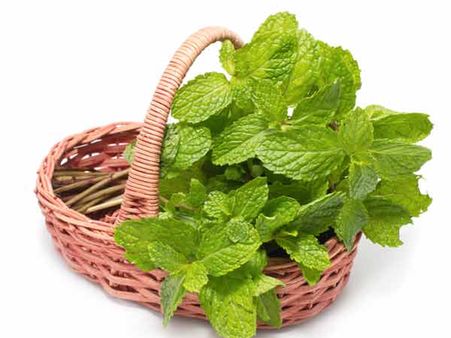
Mint For Healthy Nervous System, Upset Stomach And Irritable Bowel Syndrome
The oil in mint has antiseptic and antibacterial properties that relieve indigestion, irritable bowel syndrome and soothes upset stomach. It also strengthen the nervous system and helps to relieve headaches. You can use mint by mixing it into dressings, chutney or yogurt to serve with spicy foods like curries.
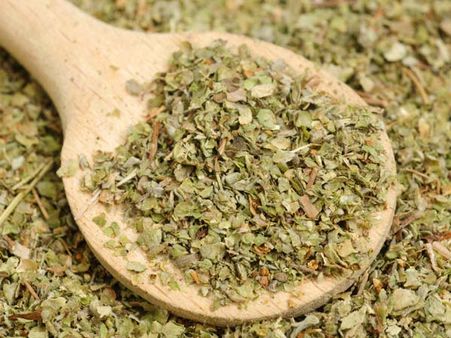
Oregano For Abdominal Pain And Antibacterial Properties
Contains oils that have an antioxidant effect. It is one of the herbs that are good for you. Oregano oils also have antibacterial and antifungal properties. Oregano relieves menstrual cramps and abdominal pain. It's also a diuretic and helps clear mucus in nasal congestion. So, it can be helpful to treat cases of colds, flu, headaches and respiratory problems .You can use oregano in pasta sauces, salad dressings, fish or chicken dishes and with eggs or cheese. Add it at the end of the cooking process to retain its health benefits.

Coriander For Insomnia And Anxiety
It
is
one
of
the
healthy
herbs.
Coriander
seeds
have
been
used
to
treat
insomnia
and
anxiety
because
of
their
sedative
effects.
Coriander
is
also
promotes
good
memory.
It
is
also
effective
in
reducing
allergic
reactions
such
as
hay
fever.
It
has
anti-microbial
and
anti-fungal
properties.
It
is
also
a
powerful
detoxifying
agent
for
harmful
substances
such
as
lead
and
mercury.
Other
benefits
include
regulating
insulin
levels
reducing
cholesterol
and
relieving
headaches.
Coriander
is
best
added
to
dishes
just
before
serving,
as
heat
can
reduce
its
health
benefits
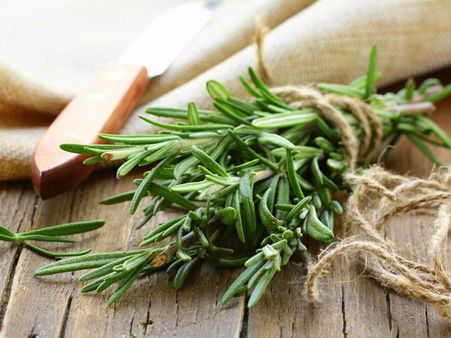
Thyme For Asthma, Bronchitis, Cold, Cough And Flu
It helps to clear mucus, hence, is useful in cases of asthma, bronchitis, cold, cough, flu and sinus infections. It helps in digestion and can be as a general tonic and antioxidant. You can make a tea from it to treat sore throat and gum diseases as it has anti-bacterial effect. Add thyme to meat dishes to ease digestion. You can also make its tea.

Rosemary To Treat Inflammation And Liver Diseases
Rosemary has antioxidants, anti-inflammatory and antiseptic properties. It helps to reduce inflammation, lower the risk of asthma, liver diseases and heart diseases. You can use it in a tea or gargle to heal gum diseases and sore throat. Rosemary also contains oils that calms the nerves and eases upset stomach. Rosemary also treats hair loss and improves memory.
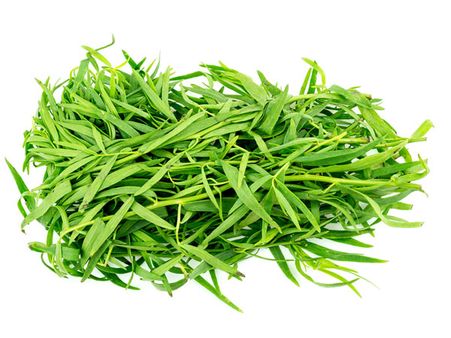
Tarragon For Toothache And Sore Gums
Tarragon is used as a temporary remedy for a toothache and sore gums. It helps to calm an upset stomach caused by stress. It also improves digestion. It has antioxidant properties, antibacterial and anti-fungal properties. Tarragon is used to treat digestion problems, poor appetite, water retention and helps to promote sleep. Add it at the end of cooking as heat decreases its flavor. Add it to chicken, fish and egg dishes.
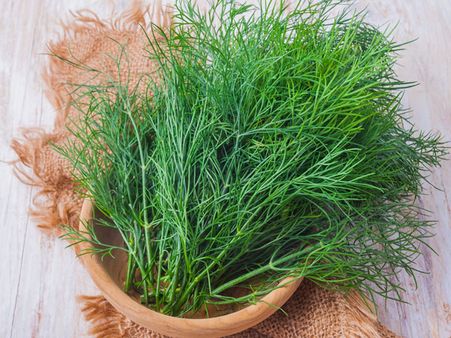
Dill For Upset Stomach And Urinary Infections
It has diuretic and antibacterial effects that are helpful to treat bladder infections. It has an anti-inflammatory effect on the digestive tract, and treats upset stomach. It also helps to regulate blood sugar and cholesterol levels. You can use both the seeds and fresh herb to gain benefits. The herb goes well with seafood, salads, potatoes and steamed vegetables. You can make its tea too.

Sage For Joint Pain, Excessive Sweating And Menopausal Symptoms
Sage is useful for women's health to treat heavy or irregular periods and relieving menopausal symptoms. It is also effective to treat joint pain, excessive sweating and upset stomach. It also has a mild diuretic effect. Its antioxidants may help to improve memory and concentration levels. Use sage in herbal teas, add to salads, soups and in stuffing for meats. You can also season many dishes with dry sage leaves.
-
 healthHerbs That Reduce Burn Belly Fat In Two Weeks!
healthHerbs That Reduce Burn Belly Fat In Two Weeks! -
 healthWorld Cancer Day 2024: Exploring Anti-Cancer Properties Of Indian Herbs And Spices Which Are Natural Healers
healthWorld Cancer Day 2024: Exploring Anti-Cancer Properties Of Indian Herbs And Spices Which Are Natural Healers -
 healthUnlock the Magical Stress-Busting Power of Indian Spices and Herbs
healthUnlock the Magical Stress-Busting Power of Indian Spices and Herbs -
 healthAyurvedic Herbs And Spices Commonly Used During Onam And Their Benefits
healthAyurvedic Herbs And Spices Commonly Used During Onam And Their Benefits -
 beauty3 Kitchen Herbs That Are A Blessing To Your Skin And How To Use?
beauty3 Kitchen Herbs That Are A Blessing To Your Skin And How To Use? -
 healthIndian Herbs That Help Burn Belly Fat
healthIndian Herbs That Help Burn Belly Fat -
 healthVaginal Health: Can You Use Herbs Down-Under? Is It Safe?
healthVaginal Health: Can You Use Herbs Down-Under? Is It Safe? -
 healthNational Dengue Day: Indian Herbs That Repel Mosquitoes; How To Use
healthNational Dengue Day: Indian Herbs That Repel Mosquitoes; How To Use -
 wellnessYear Ender 2022: Most Searched Ayurvedic Herbs In 2022 And Their Uses
wellnessYear Ender 2022: Most Searched Ayurvedic Herbs In 2022 And Their Uses -
 wellnessMadagascar Periwinkle And Its Astounding Benefits For Diabetes, High BP, Skin Health And More
wellnessMadagascar Periwinkle And Its Astounding Benefits For Diabetes, High BP, Skin Health And More -
 hair care5 Herbs That Can Boost Hair Growth
hair care5 Herbs That Can Boost Hair Growth -
 wellness10 Herbs And Spices That May Help Reduce The Risk Of Dementia
wellness10 Herbs And Spices That May Help Reduce The Risk Of Dementia


 Click it and Unblock the Notifications
Click it and Unblock the Notifications



